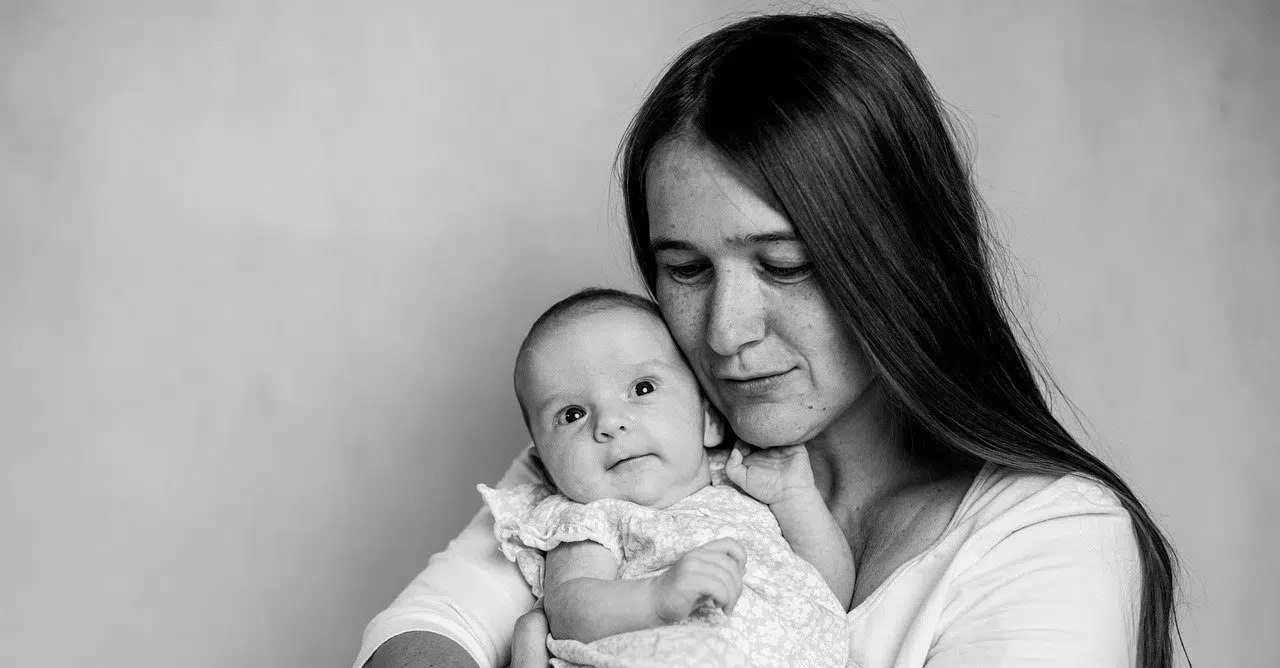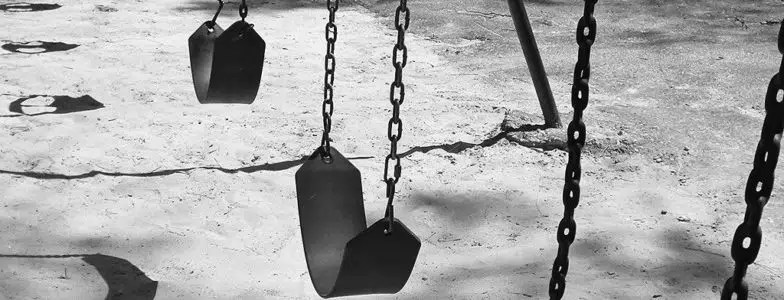Children and the Meaningful Life

America’s birthrate is at its lowest point ever. Now, a new survey suggests that there is little reason to hope that this trend will reverse itself any time soon.
According to the poll by Pew Research, 44% of non-parents say that it’s not too likely, or not at all likely, that they will have children. This marks a significant change from 2018, when Pew conducted a similar poll, in which only 37% of non-parent respondents said they were unlikely to have children.
The fact that significantly fewer people plan on having children than just a few years ago does not bode well for the demographic situation in this country.
Data released earlier this year found that in 2020 birthrates fell for the sixth straight year, to just 56 births per 1,000 women. That’s about half the birthrate of the 1960s. Meanwhile, the total fertility rate, which is the number of children that each woman is expected to have during her lifetime on average has fallen to just 1.6. This is far below the rate needed simply to replace the population, i.e., 2.1 children born per woman.
Why Don’t People Want to Have Kids?
There are huge economic, social, and political implications of having a population that is not replacing itself. Naturally, researchers are trying to figure out why more adults are rejecting parenthood outright.
Although Pew did ask respondents why they don’t plan on having kids, the answers weren’t especially helpful. By far the largest group of people (56%) gave as their reason that they “just don’t want to have kids.” The remainder selected other responses, including medical reasons (19%) and financial reasons (17%).
Interestingly, while many articles about the dropping fertility rate tend to highlight growing concern about climate change and the environment, only a small number (5%) of respondents selected “environmental reasons, including climate change” as their reason for not wanting to have children.
Somewhat better data comes from a 2018 poll by the New York Times, which also asked a significant number of non-parents why they don’t want to have kids. In this case, they didn’t restrict respondents to a single answer, which allows us to get a fuller picture of the motivations behind chosen childlessness.
By far the largest reason given (64% of respondents) was that “child care is too expensive.” In fact, six out of the top eight reasons given by respondents for not wanting children had to do with finances, including the broad “can’t afford more children.” Interestingly, in this survey a much larger 33% of respondents cited “climate change” as a reason for not having children. To me, this suggests that while worries about the environment are a contributing factor for why people don’t want to have kids, for most people they are not the primary reason.
In general, many of the answers to the New York Times survey can be traced to worries about future uncertainty, especially the financial burdens of parenthood. However, other responses – e.g., “want more leisure time” – also suggest more nakedly selfish reasons for avoiding children.
The fact that so many people cited financial reasons for not having children could be taken as evidence that the problem isn’t necessarily chosen childlessness, but rather growing fears about economic and political instability. In which case, the solution to falling birthrates would be to fix the economy. This, however, strikes me as almost grossly simplistic.
It is certainly true that over the past decade and a half we have experienced some difficult times. The 2008 financial crash took a significant financial toll on many people. Currently, Americans are carrying unprecedented levels of debt. And, of course, the COVID pandemic has unmasked the vulnerabilities of our way of life.
At the same time, however, we must be careful not to overstate the hardships of our time. In fact, we in the West right now (yes, even in the midst of a pandemic) live in one of the most comfortable, affluent, and secure societies in all of human history. Poverty and food scarcity are at historically low levels. Health care is more advanced and more widely available than ever before. The houses we live in would appear as palatial to most of our ancestors.
Most of our ancestors faced vastly higher rates of maternal mortality, child mortality, and disease prevalence, and far greater threats of famine and starvation. And yet, you would be hard pressed to find much evidence (except, perhaps in the most decadent societies, such as late-empire Rome) that adults widely wanted to escape parenthood. Indeed, most adults viewed parenthood as arguably the key to living a truly meaningful life.
So, what has changed? Well, contraception for one. And yet, contraception has been widely available for decades now, but in the States, the birthrate started plummeting after 2008 and hasn’t recovered since, despite economic recovery. This suggests that something much more fundamental than contraception or financial insecurity is at play…something psychological, philosophical, and ultimately, spiritual.
The Selfishness of Childlessness
In a Wednesday audience in 2015, Pope Francis addressed this question. “Not having children is a selfish choice,” he stated bluntly.
“Life rejuvenates and brings multiplying energy: It enriches, it does not impoverish,” he added. “A society stingy in generation, that does not love to surround itself in children, that considers them overall a worry, a weight, a risk, is a depressed society.”
Life has always been full of uncertainty, hardships, and suffering. And yet, even in much more difficult times, men and women have gotten married, and opened their arms wide to life, recognizing that for all the challenges of parenthood, new life “rejuvenates” and “enriches” life.
No, it isn’t that we live in especially hard times. It is, as Pope Francis indicated, that we live in a depressed society, a society that is being sapped of its vigor, that is choosing the selfish, safe way, rather than the courageous road of risk-taking and self-giving. It’s a question of our priorities.
Far too many people now live under the illusion that the path to happiness is to live a safe life, without risk, without discomfort, and without responsibility.
In his famous book Man’s Search for Meaning, the Jewish psychologist Viktor Frankl, a survivor of the Nazi death camps, wrote, “Those who have a ‘why’ to live, can bear with almost any ‘how.’” That is to say, if a person has a purpose to live for, they can face the sufferings and uncertainties of life with their head lifted high. In fact, they can find meaning for their lives even within those sufferings, recognizing that by facing the challenges of life with courage and confidence, they can grow in strength, and use their gifts to impart strength and comfort to others, and to build something lasting by using their limited time on earth in a meaningful way.
In another beautiful passage, Frankl wrote, “Ultimately, man should not ask what the meaning of his life is, but rather must recognize that it is he who is asked. In a word, each man is questioned by life; and he can only answer to life by answering for his own life; to life he can only respond by being responsible.”
Parenthood and Responsibility
This word, “responsible,” reminds me of the title of Pope St. John Paul II’s famous philosophical work about marriage and sexuality, Love and Responsibility. In that book, the sainted pope makes the case that love, in particular erotic love, only achieves its transcendent purpose when it is integrated into an embrace of the responsibilities that come with it.
Among these responsibilities are the responsibility towards one’s spouse, ensuring that sexual love is manifested as a striving towards authentic self-gift towards the other. However, also inseparably connected to sexual love is the responsibility towards the children that can be begotten through sexual union. And this responsibility is manifested in a courageous openness to children.
“The sexual intercourse of a man and a woman in marriage possesses its full value of a personal union only when it contains the conscious acceptance of ‘the possibility of parenthood,’” wrote the Holy Father in that book. He added, “If the potential parental moment is positively excluded from the conjugal act, the reciprocal configuration of the persons partaking in this act is thereby changed. This change progresses from a union in love to a shared or, rather, merely mutual ‘use.’”
The Fathers of the Second Vatican Council also affirmed this inseparability of sexual union and procreation in Gaudium et Spes, writing: “Marriage and conjugal love are by their nature ordained toward the begetting and educating of children. Children are really the supreme gift of marriage and contribute very substantially to the welfare of their parents.” (no. 50, emphasis added)
Notice that second sentence. The modern world views the Church’s teachings on sexuality as constraining and legalistic. It wants sex as pure pleasure, severed from responsibility, emancipated even from the constraints placed on sexuality by nature itself. And yet, what Frankl, John Paul II, and the Council Fathers are all pointing to is that, in the end, authentic pleasure – in the sense of happiness, or what the philosophers call “beatitude” – cannot be achieved without embracing the call of responsibility towards something higher than ourselves. Once this switch is made, then children are no longer viewed simply as an expensive and often bothersome luxury, but rather as the “supreme gift” of marriage, who give far more than they take.
A healthy economy is a good and desirable thing. But count me dubious that any amount of financial security will do much to reverse our demographic woes. Even the wealthiest of the wealthy can spend their days fretting about financial insecurity. The only path out of fear is hope, which is expressed in a dogged courage to take risks in pursuit of the good.
Parenthood is one of the greatest goods available to humans. Parents who have learned to give without counting the costs, are also often the happiest, delighting in the subtle, hidden joys of partaking in this co-creative labor. For Catholic parents, there is the added joy of knowing that – God willing – one day they will spend all eternity in the presence of God with the children that they have raised to love Him.
Until our culture relearns this deep truth that love and responsibility are inseparable, and that love that is sterile is doomed to die, we will see fewer and fewer children born. But what could be sadder than a childless culture, in which our playgrounds are empty, while adults spend their lives indulging in a series of sterile, selfish, self-centered sexual relationships in a vain pursuit of happiness, while the path to a meaningful life has been staring them in the face the whole time?
What we need is not more wealth, but a spiritual regeneration. Only then will young adults find the courage to embrace the great adventure of parenthood, placing all their trust in the providence of God.




I loved the article and I watched the video at the end. The video only had 224 views after two years. If we need to get this message out, then the author needs to do a better job of promoting it on social media. This article needs a larger audience. Numbers will make a difference.
I also had a thought like another comment made above about the priest living a celibate life. I wonder how he has become so very insightful and exudes the hope and greatness of children when he doesn’t have children. I am glad he has a vision which so many are lacking. Children are the very definition of life. They are the future and the hope and the good in this world.
I see the hypocrisy in this message coming from celibate clergy.
Talk about a profound article. Few have laid it out so well. It comes down to selfishness doesn’t it? We need to swollow our pride and surrender to His will…a very foreign feeling to Americans but necessary to live a truly authentic Catholic life.
The main reason I find that couples don’t want children is that the MAN is “afraid”of the responsibility involved – that he may not have a “perfect” child, that he will have to work much harder to provide for his family, that there is a false narrative that children diminish the relationship. I have three boys, and was fortunate to have a good paying job that allowed lots of overtime – my situation is a little unique, but I was able to let my wife stop working to devote full time to my children, and through my children, she gave a lot to the community at large. I was fortunate to be a national class athlete in college, but found I enjoyed watching my boys compete than anything I accomplished myself. Most women, even with high powered careers, in y experience (at some point) want a child or children, but the MAN blocks it – he does not want to give of himself. Unfortunately, domestic animals for many have substituted (very poorly, in my opinion) for children; I know many (at least 5) professional women “in love” with their dogs – until they had a child.